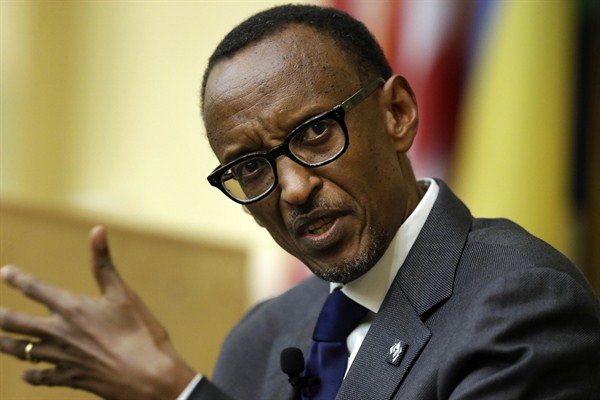“You requested me to lead the country again after 2017,” President Paul Kagame told Rwandans in a televised address on Jan. 1. “I can only accept. But I don’t think what we need is an eternal leader.” Kagame’s presidency was originally limited to two terms, but in a referendum last month, Rwandans voted to amend the constitution to allow him to run again—and potentially stay in power until 2034. He is now allowed to seek another seven-year term in 2017, and two five-year terms after that. The referendum drew criticism from Western powers, since a disconcerting 98 percent of voters approved it.
Kagame has held office since 2000 but has de facto ruled Rwanda since 1994, when his rebel forces seized the capital, Kigali, from Hutu extremists, ending the 100-day genocide that killed nearly a million Rwandans.
African presidents’ bids to change constitutions to lift term limits and hold onto power have rocked the continent in the last two years, stoking massive protests in the Democratic Republic of Congo, ongoing violence and a failed coup in Burundi, and turmoil in Burkina Faso. The United States and its Western allies have denounced these attempts; addressing the African Union in July, President Barack Obama sharply attacked Africa’s “presidents-for-life” as a major obstacle to democratic development.

